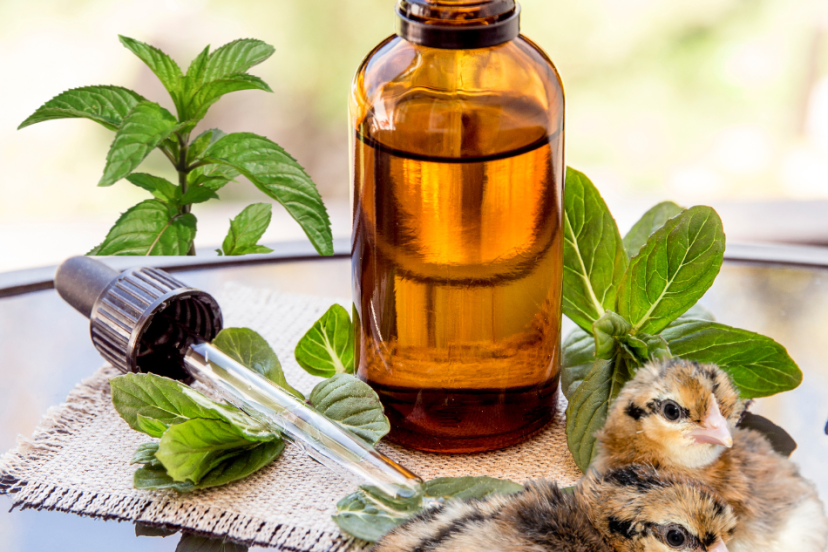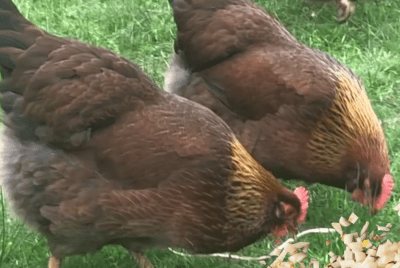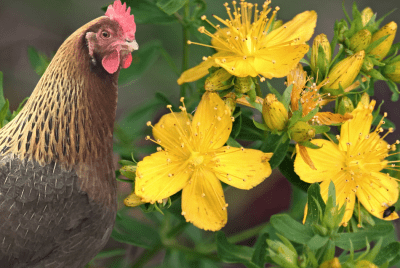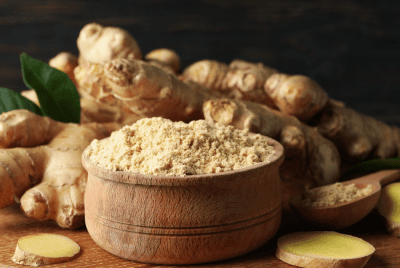How Peppermint Improves Respiratory Health in Chickens!
Respiratory health is crucial for chickens’ overall well-being. In this enlightening piece, we will explore the benefits of peppermint in enhancing chickens’ respiratory wellness. Discover the potent properties of peppermint that can help alleviate respiratory issues, boost immunity, and promote optimal respiratory function in your flock. Learn how this simple herb can make a significant difference in keeping your chickens healthy and happy.
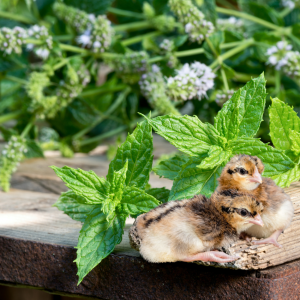
Key Takeaways:
- Peppermint is a natural herb that can help improve respiratory health in chickens.
- It contains menthol, which acts as a natural decongestant and can help with breathing issues in chickens.
- Peppermint can also help with antibacterial and antimicrobial properties to support respiratory health in chickens.
- Adding peppermint oil to the chicken’s drinking water or diffusing peppermint important oil in the coop can provide these benefits.
- Consulting with a veterinarian before introducing any new remedies or supplements to the chicken’s diet is always recommended for their well-being.
The Respiratory System of Chickens
While chickens may seem like simple creatures, their respiratory system is quite complex and efficient. The respiratory system in chickens is adapted for their high metabolic rate, allowing them to meet the oxygen demands of their active lifestyle. Understanding the anatomy and common issues of their respiratory system is crucial for poultry owners to ensure the health and well-being of their flock.
Anatomy of the Avian Respiratory System
On examining the avian respiratory system, one can appreciate its unique structure. Chickens have a system of air sacs connected to their lungs that allow for a unidirectional flow of air, optimizing oxygen exchange. This efficient design ensures that oxygen is constantly supplied to the bloodstream, supporting the chicken’s high energy requirements.
Common Respiratory Issues in Chickens
Systemic issues can arise within the avian respiratory system due to various factors such as poor ventilation, overcrowding, and exposure to infectious agents. Infectious bronchitis, Mycoplasma gallisepticum, and Newcastle disease are some of the common respiratory ailments that can affect poultry flocks. These respiratory diseases can spread rapidly within a flock, causing significant economic losses for poultry farmers.
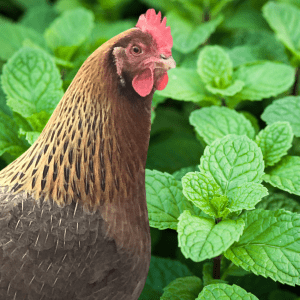
The Benefits of Peppermint
Some poultry owners may not realize the powerful benefits that peppermint can offer to improve the respiratory health of their chickens. Peppermint is not only a flavorful herb; it also contains various properties that can support the respiratory system and overall well-being of these birds.
Natural Anti-Inflammatory Properties
On top of its refreshing taste and aroma, peppermint possesses natural anti-inflammatory properties that can help reduce inflammation in the respiratory tract of chickens. By including peppermint in their diet or environment, poultry owners can potentially alleviate respiratory issues and promote better breathing for their feathered friends.
Antimicrobial Effects on Bacteria and Viruses
For poultry struggling with respiratory infections caused by bacteria or viruses, peppermint can be a valuable ally. Its antimicrobial properties have been shown to combat harmful pathogens, potentially aiding in the recovery process for infected birds. By incorporating peppermint into the chickens’ surroundings or diet, owners can provide a natural and effective means of fighting off threatening microbes.
Another noteworthy aspect of peppermint’s antimicrobial effects is its ability to target a wide range of bacteria and viruses. This broad-spectrum action makes it a versatile and reliable tool for poultry owners looking to bolster their birds’ immune systems and protect them from various respiratory illnesses.
How Peppermint Improves Respiratory Health
Despite being a common herb found in gardens and kitchens, peppermint holds remarkable potential in improving respiratory health in chickens. The aromatic herb contains menthol, which offers a myriad of benefits for the respiratory system.
Reducing Inflammation and Congestion
Respiratory issues in chickens can often stem from inflammation and congestion in the airways. Peppermint is known for its anti-inflammatory properties, which can help reduce swelling and mucus production in the respiratory tract. By easing congestion, peppermint can promote clearer breathing and overall respiratory function.
Soothing Irritated Airways
The use of peppermint can also help soothe irritated airways in chickens. Respiratory irritants can cause discomfort and lead to further complications if left untreated. Peppermint’s cooling effect and calming properties can help alleviate irritation, allowing chickens to breathe more easily and comfortably.
The menthol in peppermint acts as a natural decongestant and can help break down mucus build-up in the respiratory tract. This dual action of soothing and decongesting can aid in respiratory health by promoting clearer airways and reducing the risk of infections.
Enhancing Oxygen Uptake and Exchange
Peppermint has the potential to enhance oxygen uptake and exchange in chickens’ respiratory systems. Improved oxygen flow is vital for overall health and well-being, especially in poultry. The properties of peppermint can help optimize respiratory function, ensuring that chickens receive an adequate supply of oxygen for vital bodily functions.
To further enhance the benefits of peppermint for respiratory health in chickens, consider incorporating it into their diet or providing them with access to fresh peppermint leaves. By harnessing the natural properties of peppermint, poultry owners can support their chickens’ respiratory health and well-being.
Peppermint Administration Methods
Adding Peppermint Oil to Water
Keep your chickens hydrated and healthy by adding peppermint oil to their water. Peppermint oil has antibacterial and antiviral properties that can help support respiratory health in chickens. To administer, simply add a few drops of peppermint oil to their water source. Make sure to use a food-grade peppermint oil and consult with a veterinarian for proper dosage.
Incorporating Peppermint Leaves into Feed
To provide a more natural way of introducing peppermint to your chickens, consider incorporating peppermint leaves into their feed. Peppermint leaves can be dried and crushed before mixing them into their regular feed. This method not only improves respiratory health but also adds variety to their diet, keeping them interested and engaged.
Peppermint is known for its menthol content, which has decongestant properties that can help clear respiratory issues in chickens. By incorporating peppermint leaves into their feed, you are providing a fresh and organic way to improve their overall well-being.
Using Peppermint-Infused Sprays or Mists
Incorporating peppermint-infused sprays or mists in the chicken coop can help create a refreshing and health-promoting environment for your flock. Simply mix peppermint crucial oil with water in a spray bottle and mist the coop regularly. The soothing aroma of peppermint can help clear the airways of your chickens and promote better respiratory health.
Methods like using peppermint-infused sprays or mists offer a simple yet effective way to enhance the respiratory health of your chickens. The natural properties of peppermint can provide a safe and beneficial solution to common respiratory issues in poultry.
Scientific Studies and Evidence
Once again, let’s explore into the scientific evidence supporting the benefits of peppermint for respiratory health in chickens.
University Research on Peppermint’s Effects
The University researchers conducted a series of studies to examine the effects of peppermint on respiratory health in chickens. Their findings revealed that chickens supplemented with peppermint showed improved respiratory function and reduced incidence of respiratory illnesses compared to the control group.
Field Trials and Observations
The researchers also conducted field trials and observations to further validate their findings. They observed that chickens provided with peppermint in their diet exhibited enhanced respiratory capacity and lower rates of respiratory infections in a real-life setting.
University further studies are planned to explore the specific compounds in peppermint that contribute to its respiratory benefits for poultry.
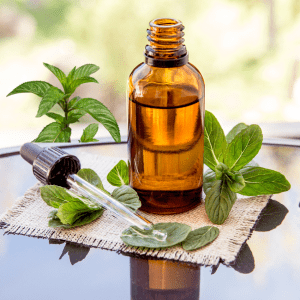
Precautions and Considerations
To ensure the safety and well-being of your chickens when using peppermint for respiratory health, it is important to consider a few precautions and potential interactions.
Potential Interactions with Medications
Interactions: Before incorporating peppermint into your chickens’ treatment regimen, consult with a veterinarian. Peppermint may interact with certain medications, such as antacids, and affect their efficacy. It is crucial to understand how peppermint could potentially interact with any existing medications your chickens are taking.
Allergic Reactions and Sensitivities
An: While peppermint is generally safe for chickens, some may be sensitive or allergic to the herb. Watch for any signs of allergic reactions, such as skin irritation, itching, or difficulty breathing, and discontinue use immediately if any adverse effects are observed.
It is recommended to perform a patch test before administering peppermint to your chickens orally. Apply a small amount of diluted peppermint oil to a small area on their skin and monitor for any negative reactions before proceeding with oral consumption.
Proper Dosage and Administration
Precautions: When administering peppermint to chickens, proper dosage is crucial. Reactions such as diarrhea or vomiting may occur if too much peppermint is given. It is best to start with a low dose and monitor your chickens for any adverse effects before gradually increasing the amount.
Conclusion
So, it is evident that peppermint can play a significant role in improving respiratory health in chickens. Its natural anti-inflammatory, antioxidant, and antimicrobial properties make it a valuable addition to their diet or environment. By incorporating peppermint into their care regimen, chicken owners can help support their respiratory systems and overall well-being.
All things considered, the use of peppermint as a natural remedy for respiratory issues in chickens showcases the power of plant-based solutions in promoting health. With further research and understanding of herbal remedies like peppermint, we can continue to explore alternative ways to enhance the respiratory health of our feathered friends. As we prioritize their well-being, peppermint stands out as a simple yet effective tool in maintaining the respiratory health of chickens.
FAQ
Q: What is the significance of peppermint in improving respiratory health in chickens?
A: Peppermint contains menthol, which has natural decongestant and expectorant properties that can help clear the airways of chickens, improving their respiratory health.
Q: How can peppermint be administered to chickens for respiratory health benefits?
A: Peppermint can be given to chickens in various forms, such as dried leaves sprinkled in their feed, a few drops of peppermint imperative oil in their water, or fresh peppermint leaves added to their nesting areas.
Q: Are there any potential side effects of using peppermint for chickens’ respiratory health?
A: While peppermint is generally safe for chickens when used in moderation, excessive consumption may lead to digestive issues. It’s important to monitor the dosage and consult with a veterinarian if unsure.
Q: Can peppermint help prevent respiratory infections in chickens?
A: Peppermint’s antimicrobial properties may help boost chickens’ immunity and potentially reduce the risk of respiratory infections. However, it should not be considered a standalone solution for preventing diseases.
Q: How frequently should peppermint be given to chickens for respiratory health benefits?
A: It is recommended to offer peppermint to chickens in moderation, a few times a week, to support their respiratory health without overloading their systems. Monitoring their response and adjusting the dosage as needed is crucial for optimal results.
Unleash the Power of Lemon Balm in Your Coop
Echinacea Magic – Boost Your Chickens Immunity with this wonder herb!
Can CHicken Eat Garlic – The Power of Garlic Revealed!
The Surprising Benefits of Basil for Chickens
Chickens Tractor will cut down your work load
Feeding ourselves and our chickens for LESS!

